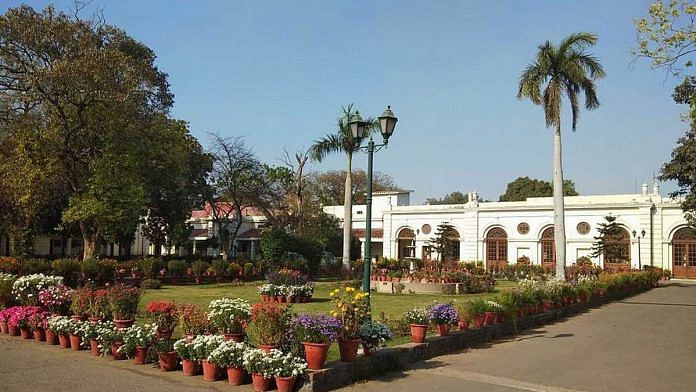New Delhi: The number of undergraduate seats up for grabs in the Delhi University’s 51 constituent colleges this year will be increased to 70,000 from last year’s 66,000, thanks to the addition of more seats under the Economically Weaker Section (EWS) category, the university’s Dean of Admissions Shobha Bagai has told ThePrint.
The extra seats are being added following the central government’s January 2019 directive asking all educational institutions to add supernumerary seats — last year, the number had gone up to 66,000 from the earlier 55,000, and 10 per cent seats were reserved under the EWS category.
However, the colleges have pointed out the challenges they are facing in increasing the seats, given issues like lack of infrastructure and shortage of faculty members. Each college will have about 150-250 extra seats on offer.
Covid-19 has also added an additional burden on colleges as they have to manage online learning resources. But the colleges have to prepare for a time when they will reopen under social distancing norms, adding another layer of problems.
Also read: ‘Haven’t misappropriated funds, Sisodia is forcing us to’ — DU colleges hit back at Delhi govt
What the principals say
College principals said while some are waiting for additional funds promised to them by the government to implement the EWS reservation, others are waiting for a go-ahead to hire faculty members. There are institutions that have extra buildings ready, but no funds to manage benches.
Ramjas College principal Manoj Khanna told ThePrint, “Our college has an extra building ready to accommodate the additional number of students… but there are no funds to get the extra benches. At present, this is not a looming issue, because students are not coming to college, but when all of them do come in, how will we manage?”
Khanna added, “Not just us, many other colleges have also not received additional funds promised under the EWS category implementation. We are happy to offer additional seats; we have no problems with that. But the government should have at least consulted with the principals first, before asking us to do something.”
Practical issues like managing common rooms for male and female students and accommodating more students in a classroom are other issues the principals highlighted.
Rajdhani College principal Dr Rajesh Giri said, “How are we going to accommodate more students if the size of the classrooms remains the same? Also, what about common rooms for girls and boys in a scenario where each class will have at least 10-20 more students?”
Some principals also said that Covid-19 has added an extra burden as they have to be ready with social distancing measures, sanitisers, thermal scanners and other infrastructure required under the health ministry guidelines for schools and colleges.
The principal of an off-campus DU college, who did not wish to be identified, said: “Covid has already added extra burden on colleges and on top of that we have not yet been paid the funds that the government promised under the EWS implementation scheme.”
Faculty and funds shortage
The other big issue that colleges face is a lack of permanent faculty members. Many colleges have ad hoc faculty members, who work on four-month contracts. There are nearly 4,500 ad hoc teachers in DU.
Babli Moitra Saraf, principal of the Indraprastha College for Women, told ThePrint, “Our college has no problem in terms of infrastructure to accommodate additional students. We are just waiting for our permanent faculty positions to be filled. We have already advertised last year and are now waiting for the process to begin.”
The colleges also dispute the government’s claim that it has helped education institutions with the EWS quota implementation. The Ministry of Education told Parliament in a written reply this year that an amount of Rs 1,436.73 crore has been allocated for the financial year 2019-20 and 2020-21 to various central universities and eligible affiliated colleges for its implementation.
“UGC has also conveyed the additional allocation as allocated by the Ministry of Education and released the grants of Rs 152.64 crore to the concerned central universities for creation of infrastructure to implement EWS reservation,” the ministry said.
ThePrint reached University Grants Commission chairman D.P. Singh and higher education secretary Amit Khare through emails regarding the DU college principals’ claims on funding. This report will be updated when they respond.
Also read: Common entrance tests for all undergraduate courses across India likely from next year




Quantity during pandemic have created issue